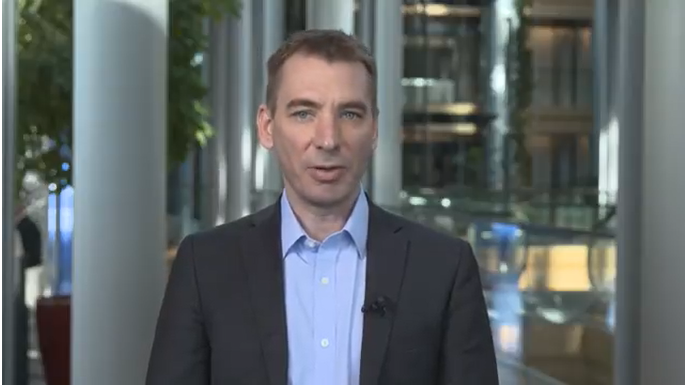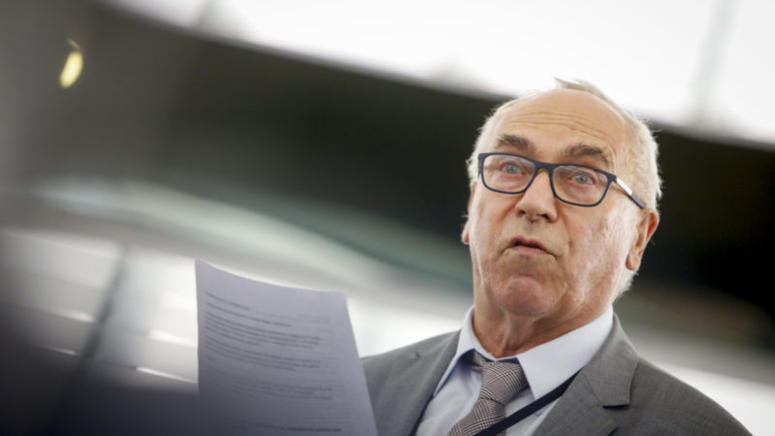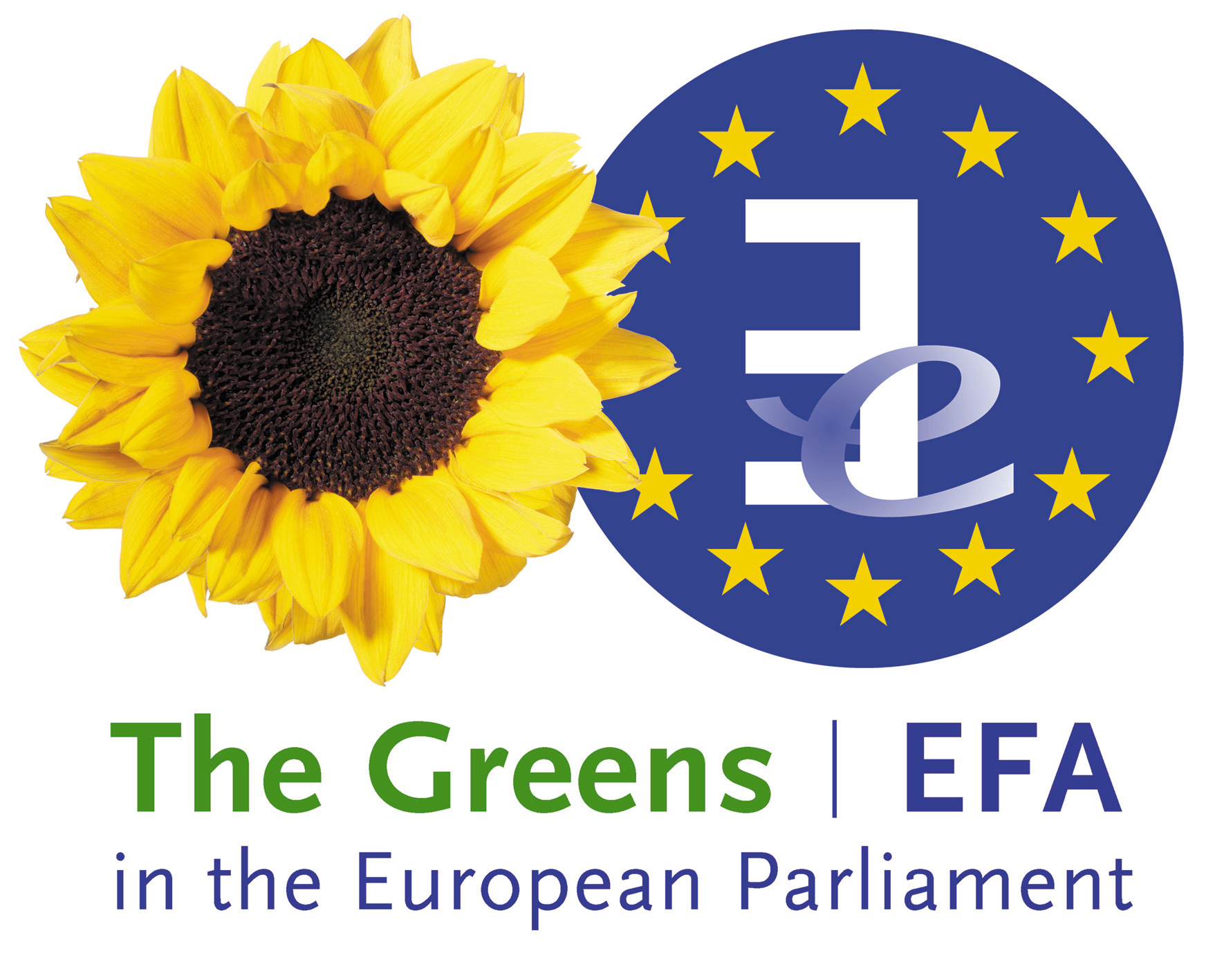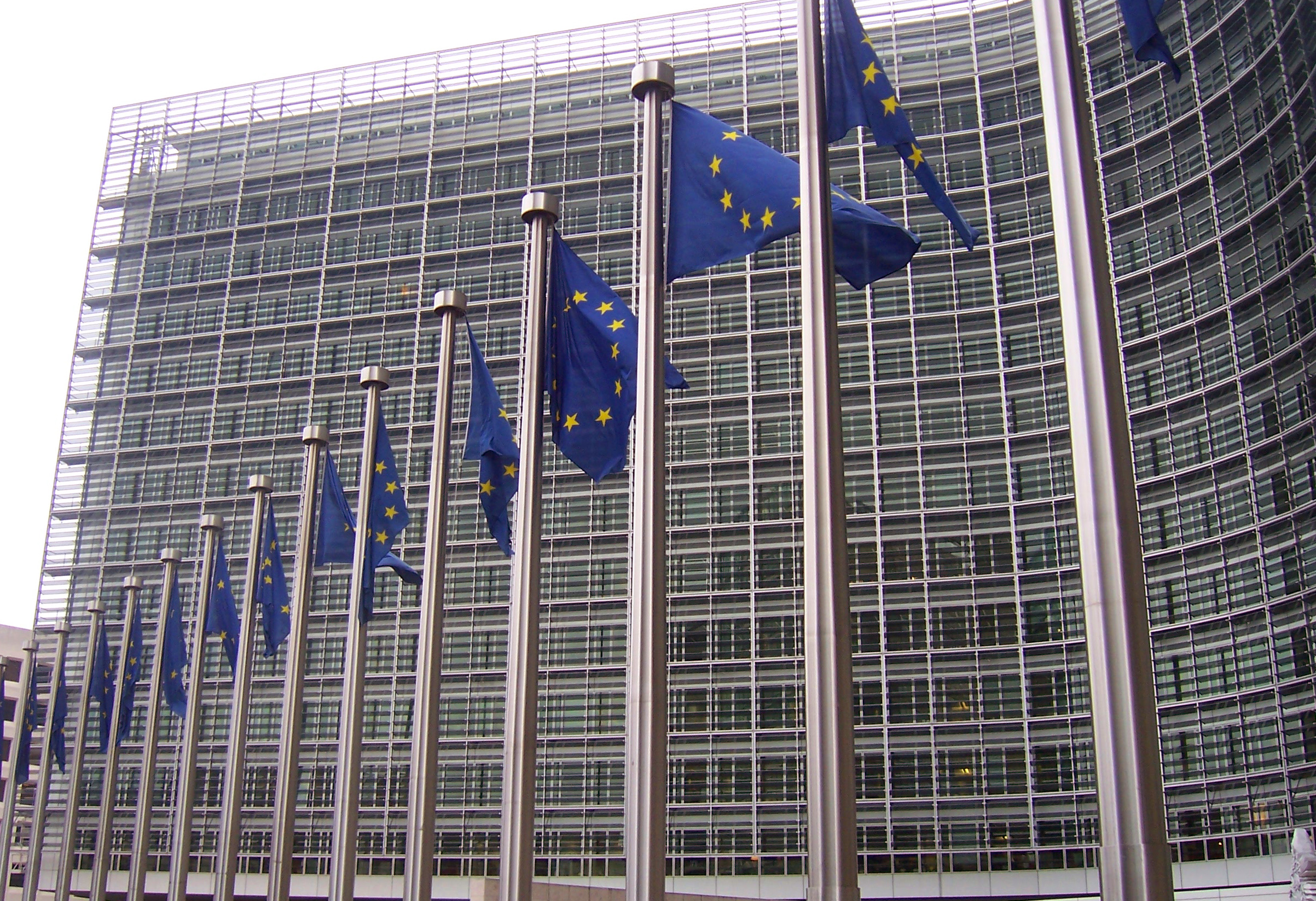Category: Environmental policy
Benedek Jávor Speaks about Nature’s Rights
Polish MEP Under Pressure on Crucial EU Energy Saving Law
An update of the EU’s Energy Efficiency Directive risks coming undone as a result of political infighting between the Polish lawmaker charged with helming the European Parliament’s revision of the legislation and much of his own political group, EURACTIV.com has learned.
Unlike its sister piece of legislation, the Energy Performance of Building Directive (EPBD), the Energy Efficiency Directive (EED) update has been far from smooth sailing.
Adam Gierek, the Polish MEP in charge of steering the draft law through the European Parliament, has been accused of negotiating key aspects of the directive against the line of his own political group, the Socialist and Democrats (S&D).
His stance on the EED is indeed much closer to the centre-right European People’s party (EPP) and the European Conservatives and Reformists (ECR) groups, sources familiar with the file told EURACTIV.com.
Adam Gierek’s initial draft report on the European Commission’s proposal was widely criticised for focusing too heavily on primary energy consumption and for ditching the S&D’s 40% energy saving target for 2030, which is the centrepiece of the legislation.
Instead of a 40% target, Gierek first opted for a far lower 28% objective before raising the bar to 35%, under pressure from MEPs in his S&D group.
The European Parliament has twice backed a 40% energy saving target, an objective again confirmed when the assembly’s environment committee voted on the EED in September. So Gierek’s insistence on diluting the target is now putting him in an awkward position with the European Parliament as a whole.
Political infighting
Relations with “shadow” rapporteurs from other political groups in the European Parliament have also been fractious. Sources familiar with the situation claim that Gierek no longer takes bilateral meetings with his colleagues and that he mistakenly identified two of the shadow MEPs as assistants during one meeting.
Gierek’s latest position actually backs the 40% energy savings goal, suggesting that he is now toeing the S&D group’s long-held energy efficiency target.
But Green lawmaker Benedek Jávor, who is shadow rapporteur on the EED, branded Gierek’s 40% offering as mere “window dressing” and told EURACTIV that a proposed change to final energy consumption would actually decrease the target to just 30-31%.
Jávor explained that under Gierek’s current proposal the EU would fail to reach primary energy targets in 2030, adding that the latest compromise from the Polish MEP is “unacceptable” and nothing short of a “trick”.
As things stand, the S&D vote together with the Greens/EFA and GUE/NGL groups would on paper be enough to form a majority and pass a report that supports the 40% target, as happened recently with the opinion adopted by the Parliament’s environment committee.
But Jávor suggested that Gierek may in fact be trying to split the vote of the S&D group in order to deliver a majority to the EPP and ECR, who support a much less ambitious energy efficiency directive.
Gierek is said to be securing the support of Socialist MEPs from Eastern Europe, making it uncertain which way the vote would swing as support is so finely balanced.
Markus Pieper, the shadow rapporteur for the centre-right EPP, has reportedly been trying to convince his group to back the Gierek proposal. Pieper declined to comment when given the opportunity to do so.
Gierek out?
A final vote in the Parliament’s industry committee is scheduled for 28 November. Calls for Gierek to be stripped of his duties as lead rapporteur have been made before and this fresh pressure could force the S&D group to consider its options again.
Socialist MEPs meet on Tuesday (17 October) for a regular horizontal working group meeting, where the EED will almost certainly be on the agenda.
When asked if he believes Gierek’s time in charge is over, MEP Jávor insisted that it is an “internal problem” which the S&D group will have to address themselves.
When contacted on Friday (13 October), Gierek was unreachable for questions.
Removing a lead rapporteur from a file is very much a last-resort option for a political group. It has happened before in Parliament but has mostly been due to technical reasons and very rarely this late in the game.
Files are awarded to political groups after intense negotiations and it is up to the relevant group to decide who in its ranks becomes rapporteur. It is then also up to the same group to decide if an MEP should be removed from their role if they are not pushing the right political agenda.
The EED is a crucial part of the Clean Energy Package and the draft report adopted by the Parliament’s industry committee at the end of November will eventually form the basis of the assembly’s position during trilateral talks with the Commission and EU Council.
The environment committee’s opinion was widely praised for being ambitious and reflecting Parliament’s position on energy efficiency, as well as a number of resolutions passed by the institution so far.
Whoever is dispatched to negotiate in trialogue for the Parliament will also be expected to mirror this position as closely as possible, especially given the Council’s insistence on a non-binding 30% target, adopted back in June.
Written comment on the plenary’s wildlife trade debate
We are witnessing an unprecedented and alarming rise in illegal wildlife trade. The problem goes beyond the overexploitation of endangered species or habitats. It can result in severe disturbances to entire ecosystems. It affects human livelihoods and is closely linked to corruption. Thus, it has severe economic and security implications.
Fortunately, wildlife crime has recently come to the forefront of political attention. Yet, the challenge remains. For the EU to counter current trends, as also called for in the EU Action Plan against Wildlife Trafficking, we need a more stringent enforcement of the existing rules for EU Member States, including CITES.
However, in order for the EU to lead the efforts and to eventually eliminate illegal wildlife trade, additional tools and further legislative measures are also necessary, as this INI report rightly points out. We need to apply robust and effective sanctions, enhance funding, research, training, change consumer behaviour, foster cross-border cooperation and work hand-in-hand with local communities.
Only an integrated approach to wildlife crime can be successful. Besides making efforts to tackle both the supply and demand side, this requires a combination of anti-corruption and nature conservation aspects and the implementation of solutions with shared responsibility across various stakeholders.
(Image source: en.wikipedia.org)
Comitology – Commission proposal would do little for accountability or public health
The European Commission has today published its long-awaited proposal for the reform of the comitology process, used to approve or renew products, such as GMOs and pesticides (see background below). The proposal comes after a series of “no opinion” conclusions from standing committees, due to a number of member states consistently abstaining.
Commenting on the proposals, Greens/EFA transparency spokesperson Benedek Jávor said:
“While we are pleased that the Commission is finally taking action, the proposals announced today fall far short of what is needed. They are merely tinkering with a system that needs to be completely overhauled. The decision making process must be made more accountable and much more transparent. For this to be achieved, decisions should fall to the governments of the EU member states and the European Parliament.”
Green food safety spokesperson Bart Staes added:
“We have seen time and time again that important decisions on GMOs and pesticides are being taken behind closed doors. Give these decisions, as in the recent case of glyphosate, carry significant health implications, they need to be made more openly. The Commission would clearly like to have greater political backing for the approval of GMOs and pesticides, but these proposals will simply mask the political disputes linked to GMO authorisations in the EU.”
Background
The Commission suggests four targeted amendments:
- The qualified majority (55% of Member States representing 65% of population) in the appeal committee will be calculated only on the basis of the number of Member States taking part in the vote (either in favour or against), while abstentions would carry no voting weight at all.
- Transparency of the votes in the appeal committee
- When no opinion is reached either in Standing Committee or in appeal Committee, there will be the possibility of a second referral to the Appeal Committee where Member States are represented at Ministerial level
- Introduction of a right for the Commission to refer the matter to Council for a non-binding opinion/position
Nature Directives: Commission commits to Action Plan to ensure full compliance
Following an orientation debate held today by the College of Commissioners, the European Commission has confirmed it will develop an Action Plan to improve implementation of the Birds and Habitats Directives (Nature Directives) and their coherence with other EU policies.
The Greens/EFA group – speaking with the same voice as NGOs and key Member States – has been advocating against opening the Directives up to revision, and has called instead for a focus on addressing enforcement problems.
After long delays in the refit process of the Directives, strongly criticised by the European Parliament, today’s orientation debate indicates that the Commission is finally willing to conclude the refit exercise and come up with the final results of the fitness check. The State of Nature report (1), also used in the process, makes it clear that EU enforcement action has been instrumental in better implementation of the Nature Directives so far. However, more needs to be done to ensure full compliance.
Commenting after today’s orientation debate, Greens/EFA MEP and Vice-Chair of the Committee on the Environment, Public Health and Food Safety Benedek Jávor said:
“We very much welcome the commitment of the Commission to develop an Action Plan to correct the implementation deficiencies related to the Nature Directives. This is something that we have previously called for (2).
“It is important to go beyond guidelines and provide effective support to national and regional actors and improve environmental inspections, including through competence and capacity building and better allocation of resources.
“In order to ensure policy integration, we must also strengthen the environmental liability directive and make sure all infrastructural developments are fitted with proper environmental safeguards.
“Last, but not least, the EU cannot leave financing investments solely to local actors. Biodiversity has to be mainstreamed in the EU budget beyond 2020, with natureconservation earmarked in each individual EU funding instrument as well as a dedicated biodiversity scheme. This would require further extension of the LIFE programme.”
(1) http://europa.eu/rapid/press-release_IP-15-4965_en.htm
(2) http://www.greens-efa.eu/eu-nature-legislation-16307.html
Recommendations for better implentation of the Birds and Habitats Directives
To date, the final outcome of the Fitness Check of the Birds and Habitats Directives is not publicly available. However, the evaluation study to support the Fitness Check as well as the report on the open public consultation (which generated an unprecedented level of interest) already indicate some key findings:
The Birds and Habitats Directives are by far the most important component of the EU’s nature conservation policy framework. The Directives – if fully implemented – are effective in protecting the nature, fit for purpose, provide a balanced framework for taking into account the diverse interests of stakeholders while respecting nature conservation objectives. The benefits of implementing the Directives far exceed the costs.
The State of the Nature report clearly shows that Europe’s nature would be in a much worse state without the positive impact of the Nature Directives and that targeted and appropriately financed efforts genuinely produce positive result.
The Directives are making a major contribution to halting the loss of biodiversity and ecosystem services. However, the current efforts will not lead the achievement of EU biodiversity goals. Additional, substantial and continuous efforts are needed, as also called for in recent resolutions of European Parliament.
The infringement cases indicate that many Member States have not fully and effectively implemented the Nature Directives. The evaluation study clearly states that progress in implementation has been slower than anticipated in the development of site conservation measures, including management plans.
Factors that have constrained progress include the impacts of certain incentives and subsidies in other policy sectors, the degree of political support for the Directives, inadequate enforcement, inadequate stakeholder involvement, knowledge limitations, limited expertise and capacity of nature authorities and other actors involved in the implementation as well as inadequate financing.
The Directives must not be revised as it would create legal uncertainty and put any further progress in the state of species and habitats at risk. However, the implementation deficits need to be corrected.
With regard to the above, I am asking you personally and the Commission as a whole to focus on the following aspects to ensure full implementation of the Nature Directives:
- effective enforcement, full compliance
- policy integration
- biodiversity mainstreaming in the budget and targeted financing
- The evidence submitted to the Fitness Check of the Nature Directives makes it clear that EU enforcement action has been instrumental in improving the implementation of the Nature Directives. However, more action is needed to ensure full compliance.
The relevant national or regional authorities in various Member States of the EU are insufficiently equipped and resourced, resulting in huge inspection deficiencies – and continuously growing pressure on the biodiversity and the environment as a whole. The recently launched Environmental Implementation Review with country specific reports may provide a new tool for screening and detection of non-compliance– yet this will not result in the much-needed improvement of environmental inspections. Thus, the Commission should without any further delay propose a legally binding framework on environmental inspections, which would introduce minimum standards for environmental inspections in the Member States. Besides, more oversight capacities should be granted to the Commission, together with the use of a variety enforcement tools, including its own inspectors to investigate infringement cases.
Another crucial aspect in this regard is the improvement of access to justice. Member States often refuse access to justice to the public on the grounds that it is not explicitly stipulated in a particular legislation. Moreover, the EU itself is in breach of the Aarhus Convention as also flagged by a UN Committee as well as a number of NGOs: the current interpretation of the European Court of Justice is restrictive, blocking access of citizens and NGOs to the courts in cases where better implementation and enforcement is at stake. We need legally binding provisions ensuring access to justice at national level. To this end the Commission should without any delay propose an all-embracing Access to Justice Directive.
- Improved implementation of the existing environmental and nature conservation policies and of the Nature Directives in particular is key to addressing the continuing biodiversity degradation. However, this alone will not lead to achieving the EU2020 headline target of halting the loss of biodiversity and its ecosystems.
The directives work in conjunction with other EU environmental legislation, mutually affecting each other.
Inter alia, agricultural, energy and climate policies as well as all land use change and infrastructure developments have a huge impact on biodiversity. These policies must be adjusted – all environmentally harmful subsidies must be seized and the policies must be fitted with robust nature conservation and environmental safeguards to ensure that the developments do not undermine ecosystems and their services but rather help improve the status of species and habitats of European importance and the coherence of the Natura 2000 network.
Besides, there is much room for improvement regarding the Environmental Liability Directive. The recent evaluation of ELD shows that the transposition has not resulted in a common understanding and a level playing field but in a patchwork of liability systems. Member States keep misinterpreting key concepts such as environmental damage and thresholds. We need to counter any misinterpretation and improve the application of the liability legislation.
The nature conservation measures themselves can be designed in a way that these deliver benefits for various sectors and stakeholders. In this respect, large scale ecosystem restoration as well as a green infrastructure projects are key. In order to counteract and further fragmentation and loss of habitat connectivity, the Commission should present its Trans-European Network of Green Infrastructure (TEN-G) Initiative as soon as possible, by 2017 at the latest, as also requested by the European Parliament.
Member States and their authorities need technical assistance and capacity building in all the areas mentioned under points 1) and 2).
- The Commission should make sure that funding gaps for nature conservation arer closed and biodiversity is mainstreamed in the EU budget beyond 2020. Therefore the next Multiannual Financing Framework should contain biodiversity and nature conservation earmarks in each individual EU funding instrument, with particular attention to those of the common agricultural policy and the cohesion policy. Besides, we need dedicated funding stream to sufficiently cover biodiversity investment needs – this could imply the expansion of the LIFE programme (and the natural capital financing facility).
To conclude, I call on the Commission to come up with an Action Plan on the better implementation of the Nature Directives as soon as possible, by 2017 at the latest, containing all the elements listed above.
(Image source: birdlife.org)
Japan’s decision to resume whaling in the 2015-2016 season
On 31st March 2014 the UN’s International Court of Justice – in its legally binding decision – ruled that Japan’s state-subsidized whale-hunting in the Southern Ocean did not fall within the scope of scientific research and therefore was considered illegal. In spite of the ruling, Japan has recently resumed whaling, exploiting a loophole that allows for a limited amount of hunting for scientific purposes.
Even though there has been a moratorium on commercial whaling since 1982, there is still supply of whale meat in Japan due to imports and the sale of the meat that was hunted on scientific missions. However, the hunting of whales could not be justified by the alleged strong cultural attachment to whale meat, either – which was popular in the post-war period since it was a cheap source of protein-, as, according to research conducted by Greenpeace, whale meat consumption in Japan amounted to about 30 grams per person on average in 2015 (whereas the stockpile of unsold frozen whale meat totalled up to 5900 tons in 2011).
Following the suggestion of Greenpeace, activism from within Japan should be combined with international pressure. Therefore, I urge the European Instutitions and the Member States to take action and firmly step up against this out-dated and illegal practice.
Investing for a greener future – Green Week debate
You can dowload my presentation from here.
Diesel cars can break pollution limits, MEPs decide
The European Parliament has accepted a decision by member states to allow diesel cars to emit double the legal emission limit of nitrogen oxide until 2020.
The EP voted on Wednesday (3 February) to accept the decision by representatives of national governments made in October that, following the entry into force of a more accurate testing method next year, new models would be allowed to emit nitrogen oxide at a rate of 168 milligrams per kilometre, despite an EU limit of 80mg/km.
Beyond 2020, 120mg/km will be allowed.
The reason companies are given leeway is that actual emissions are on average four times as high as in laboratory tests.
Countries did not want to demand companies close this gap by 2017, when the new “real driving emissions” (RDE) test becomes operational.
The amount of extra emissions the manufacturers are allowed is called the “conformity factor”.
‘Blanket derogation’
The EP decision was taken under the so-called comitology procedure, which meant that the European Parliament was only able to adopt or reject it, not to change it.
At last month’s plenary session in Strasbourg, Hungarian Green MEP Benedek Javor asked on behalf of the parliament’s environment committee for the proposed flexibility on emissions to be rejected, saying it “would result in a de facto blanket derogation from applicable emission limits”.
But a vote scheduled for the January session was postponed.
Between the debate and Wednesday’s vote, the commission announced another legislative proposal to gain more powers over the approval process of new car models.
On Wednesday, industry commissioner Elzbieta Bienkowska sought to soothe anger over the emissions proposal by telling the plenary that new powers for the commission would provide a “robust, stronger type approval system in Europe”.
“The commission will get supervisory powers and will make sure that member states enforce the rules, so no new Volkswagen cases in the future,” she told MEPs.
‘Victory for the car lobby’
In January, Bienkowska had already noted that the doubling of emissions limits proposal included an annual revision clause.
“This means that, from 2020 onwards the emission limits can be adjusted if technology improves,” the commissioner said.
She added on Wednesday: “The objective of this revision clause is to bring the conformity factor to one as soon as possible, and at the latest by 2023.”
Also speaking ahead of the vote was the chairman of the EP’s environment committee, Giovanni La Via, a member of the centre-right EPP group, one of the current administration’s two main political backers.
He said the commission had shown “a clear commitment for the future” and that MEPs should “take this commitment into account during the vote”.
The EP proposal to reject the plan received 317 Yes votes, 323 No votes and 61 abstentions. A qualified majority of 375 Yes votes was required.
After the vote, the European Automobile Manufacturers’ Association published a statement about the vote in which it welcomed the “much needed clarity”.
For their part, the Green group in the EP said the outcome amounted to “a reward for car makers who have made no effort to respect the legal limits on pollutants set out in EU law since 2007” and that it represented “another in a long list of victories for the car industry lobby in Brussels”.










